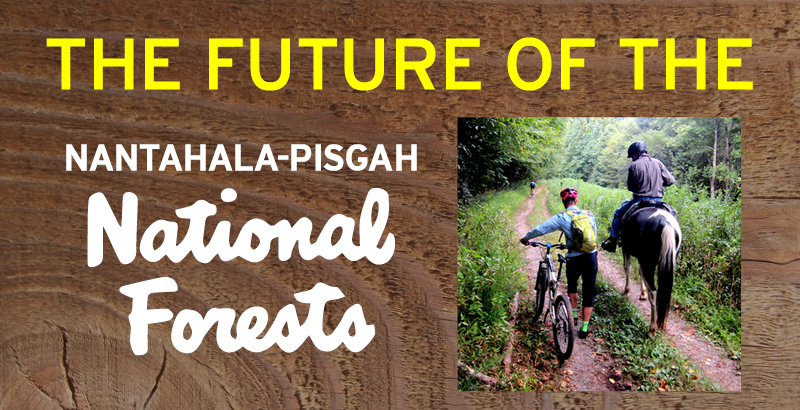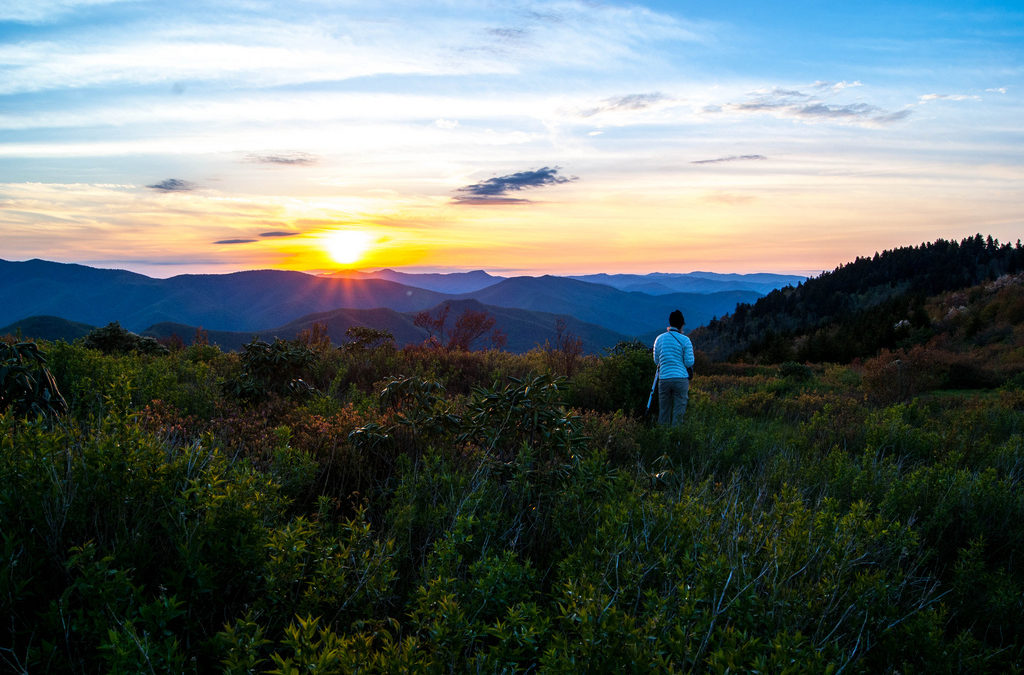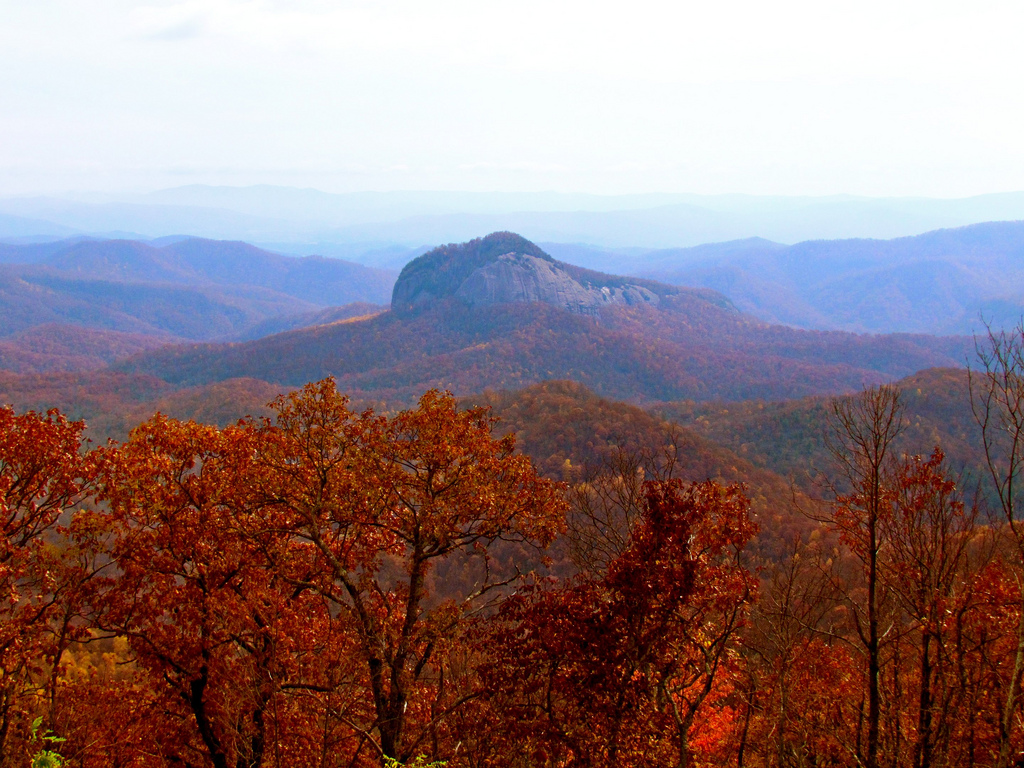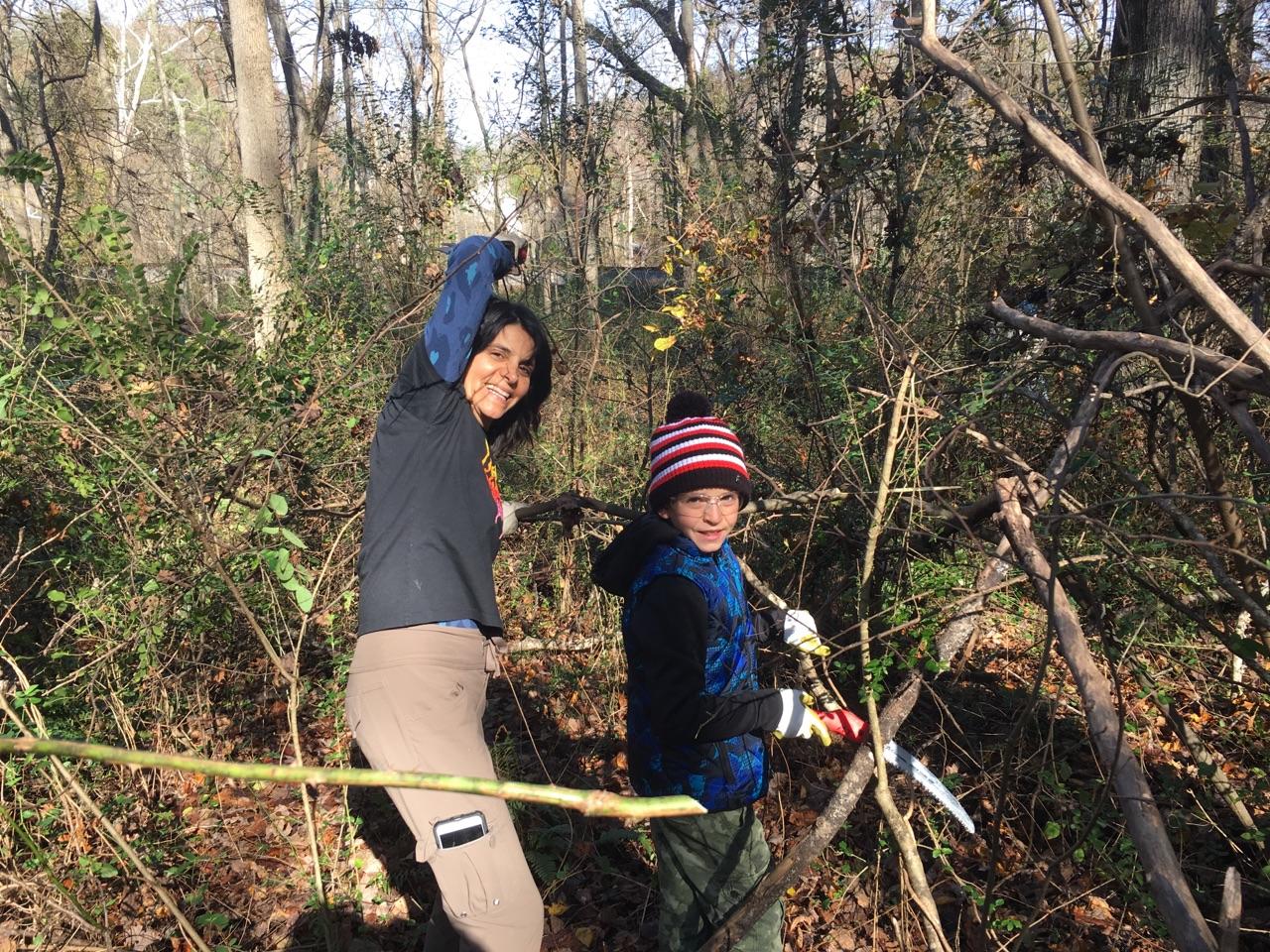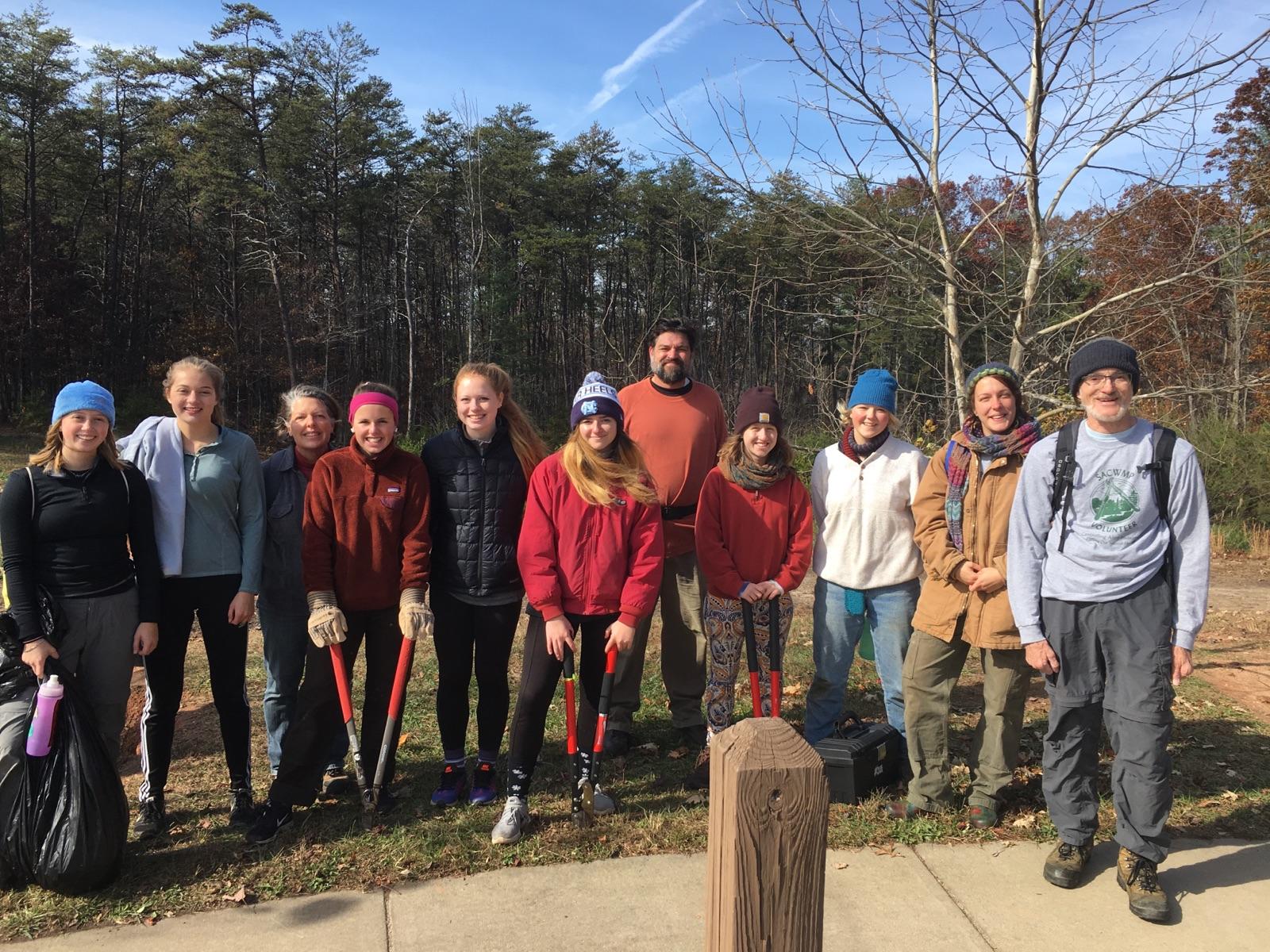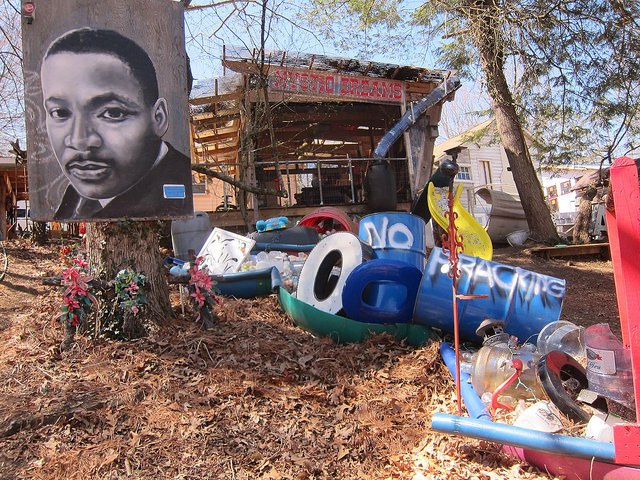Media Contact:
Eliza Stokes, MountainTrue Advocacy & Communications Associate
Email: eliza@mountaintrue.org Phone: 828-258-8737 ext. 218
FOR IMMEDIATE RELEASE
Sylva, N.C. – Experts representing a diverse group of conservation, recreation and business interests will take part in a series of special panel events on the future of the Nantahala-Pisgah National Forests this March. The panels, which will be held in Sylva, Boone, Brevard, and Andrews, will present visions for a win-win forest management plan that allows all interests to co-exist and thrive in Western North Carolina’s national forests.
The Forest Plan Determines the Future of Our Forests
This year, the U.S. Forest Service will release the first draft of a new forest management plan for Pisgah and Nantahala National Forests. This big-picture plan sets the ground rules for all activities in the forests for the next fifteen years or more: from wildlife management and timber sales on public lands to the hiking, fishing and mountain biking for which our region is famous.
Comprising more than a million acres combined, Nantahala and Pisgah are a central part of our natural and cultural heritage and a driver of our region’s economy. Everyone who loves our forests has an issue they care about that will be impacted by the new forest management plan.
We’re Working Together for a Plan That Benefits Everyone
In the spirit of cooperation, the Nantahala-Pisgah Forest Partnership was formed to gather all forest interest groups into the same room at once: timber, water, wildlife, recreation, wilderness and more. We don’t leave anyone behind, and we believe it’s critical that everyone be willing to support everyone else’s values with the expectation that the support will be reciprocal. For the past five years, the Partnership has come up with a vision and a set of recommendations for a forest plan that supports all forest interests at once. The Forest Service has also received recommendations from other groups participating in the forest plan revision, and now we want to share the best of those ideas with the wider public.
The panel schedules are as follows:
Sylva
March 15 at the Jackson County Public Library, 6-7:30pm
Panelists: Josh Kelly, Public Lands Field Biologist for MountainTrue
Tommy Cabe, Tribal Forest Resource Specialist for the Eastern Band of Cherokee Indians
Andrea Leslie, Habitat Conservation Coordinator for the North Carolina Wildlife Resources Commission
Bill Kane, Board Member of the NC Wildlife Federation
Boone
March 22 at the Watauga County Public Library, 6-7:30pm
Panelists: Josh Kelly, Public Lands Field Biologist for MountainTrue
Julie White, Director of the Southern Off-Road Mountain Bicycle Association (SORBA)
Jim Sitts, Appalachian Timber Manager for Columbia Forest Products
Curtis Smalling, Director of Conservation for Audubon North Carolina in Boone
Deirdre Perot, Representative of BackCountry Horsemen of Pisgah
Brevard
March 27 at the Transylvania County Public Library, 6-7:30pm
Panelists: Tom Thomas, President of Back Country Horsemen of NC and Member of
North Carolina Horse Council
Megan Sutton, Southern Blue Ridge Program Director of The Nature Conservancy
David Whitmire, Fish & Wildlife Conservation Council and Co-Owner of Headwaters Outfitters
Kevin Colburn, National Stewardship Director of American Whitewater
Fred Hardin, Forester with Gilkey Lumber Company
Andrews
March 29 at the Andrews Community Center, 6-7:30pm
Panelists: Callie Moore, Executive Director of the Hiwassee Watershed Coalition
Tommy Cabe, Tribal Forest Resource Specialist for the Eastern Band of Cherokee Indians
Sophia Paulos, Economic Development Director of Graham County
Chris Coxen, District Biologist for the National Wild Turkey Federation
The panels in Sylva, Boone and Andrews will be moderated by journalist and professor of economics at Blue Ridge Community College Jack Igelman. The panel in Brevard will be moderated by Lee McMinn of the Transylvania County Resources Council. The events are free and open to the public, and will include a question-and-answer portion with the audience at the end. Refreshments will be provided.
The panel events are sponsored by MountainTrue and the following members of the Nantahala-Pisgah Forest Partnership: Access Fund, American Whitewater, Backcountry Horsemen of NC, Carolina Land & Lakes RC&D, Columbia Forest Products, Defenders of Wildlife, Hiwassee River Watershed Coalition, International Mountain Bicycling Association, North Carolina Horse Council, North Carolina Youth Camp Association, Root Cause, Southern Appalachian Mineral Society, Southern Appalachian Wilderness Stewards, Southern Off-Road Bicycle Association, The Nature Conservancy, Trout Unlimited, the Wilderness Society, and Wild South. The panel in Brevard is also sponsored by the Fish & Wildlife Conservation Council.
For more information, visit: https://mountaintrue.org
RSVP for the event on Facebook:
Sylva: https://www.facebook.com/events/192008638062642/
Boone: https://www.facebook.com/events/152570672114961/
Brevard: https://www.facebook.com/events/170391063741025/
Andrews: https://www.facebook.com/events/340141849725131/
About MountainTrue:
MountainTrue is the oldest grassroots environmental non-profit in North Carolina and champions resilient forests, clean waters and healthy communities. We engage in policy advocacy at all levels of government, local project advocacy, and on-the-ground environmental restoration projects across 23 counties in our region.
About the Nantahala-Pisgah Forest Partnership:
The Nantahala-Pisgah Forest Partnership strives to create a lasting voice for innovative management and public investment in the public forests of North Carolina’s mountains for the future. We envision a thriving, resilient forest within its natural range of variation, able to support healthy ecosystems, wildlife populations, local economies, and traditional uses. We envision a forest with the connectivity and integrity to remain resilient in the face of the changes and challenges of the future.
About the WNC Fish & Wildlife Conservation Council:
The Fish and Wildlife Conservation Council, formed by a variety of sportsmen and other wildlife interests, supports the sound management and conservation of all wildlife resources in the Nantahala-Pisgah National Forest and provides support and positive guidance to ensure a diversity of wildlife thrives there.
###




